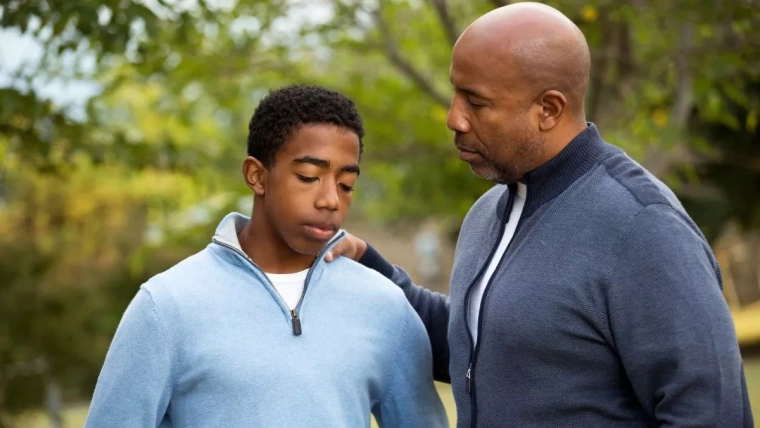When a couple separates, and children are involved, it can be extremely difficult for all parties involved. The process may leave more questions than answers, including how long it may take to decide who the child or children will live with. Determining the length of a settlement for child custody involves several factors, including whether the case goes to trial.
Trial vs. No Trial
Every case involving child custody is different, meaning that whether it goes to trial and how long that can take will vary depending on the circumstances. If, for example, the parents involved can reach an amicable agreement without involving the court system, a resolution will be quicker and simpler. If this agreement is uncontested, then the court will likely accept whatever terms the two parents involved come to.
If, however, the parents are unable to reach an agreement, then they must go to court. The process becomes much longer as a judge determines the settlement. That means attorneys will be involved, which will include a discovery phase, evidence presentation, and a hearing.
Courts often have tight schedules, and their availability to hear the case can be complicated by these factors. While a date may be scheduled, parents should expect for that date to change based on the court’s schedule in other cases. Because of this, the average time for a court to settle child custody cases could be around eighteen months. That is, depending on how busy the local system is, it could be shorter or longer.
In addition to the court schedule, parents also need to work around personal schedules, including work. This can further complicate the timeline. For these reasons, it is always encouraged that parents try to reach an agreement between themselves.
The Mediation Process
One way to attempt to settle child custody issues without the court is through a process called mediation. In this process, both parents and their representatives sit down with a mediator to try and work through their issues without the need for a judge. In fact, many judges will attempt to assign a mediator to conduct this process even if the parents are unable to find one on their own. This is a way to save time and money, as it will not involve the court costs that a trial would.
This process will take place in the mediator’s office, where both parties will be in separate rooms. The goal of the mediator is to provide an avenue for open dialogue between the two parties by remaining an independent third party. Through the process, they will help to settle issues involving:
- Parenting schedules
- Communication as co-parents
- What vacations and travel will look like
- Shared expenses
- Other necessary and important details
If the mediation process is successful, the mediator will take the agreement and present the findings to a judge, who can then make the final decision. Even if the parents cannot reach a mutual agreement, that information will be presented and used as part of the trial.
Other Contributing Factors
In addition to the success of the parents’ efforts, either independently or through mediation, there are other factors that will determine the length of time it takes to settle a child custody case. Other contributing factors include:
- The assigned judge: Like any job, different people perform this job differently. Some judges may take longer to analyze the evidence or hear the trial. This could impact the length of the trial or the length of the determination after the trial has concluded.
- The attorneys involved: This, like the judges, could factor into the time it takes for discovery and analyzing the evidence to help build a case for you. While you want them to show diligence, the longer they take, the longer the trial will be. The skills and experience of an attorney are also factors.
- Details of the case: The amount of custody each party is requesting could also prolong the case. For example, if both parties are requesting full custody of the child, then the mediation and trial will likely take longer. Complications may arise if there is any evidence of child abuse, domestic abuse, or illegal substance abuse.
FAQs
Q: How Long Do Most Child Custody Cases Take in California?
A: Each case of child custody is unique, and the length of the process could be determined by a number of factors. The biggest factor in determining how long it takes to settle is whether the parents can reach an agreement with each other independently of the court system. If the matter goes to trial, it could take 18 months to conclude.
Q: How Does Child Custody Work?
A: Child custody in California can take several forms. Parents can share custody, or there could be one parent awarded majority or sole custody. Once the determination is made, there will be a parenting agreement between both parties that will help determine visitation, child support, and other parenting decisions. If a parent wishes to modify the agreement, they should file a petition through their attorney.
Q: What Happens at a Custody Hearing?
A: Generally, a trial will begin with the judge presenting the procedures that both parties will adhere to. Both parties will then be able to address the court, beginning with the parent who filed the petition for custody. There will be a presentation of evidence from both sides, and the court will then decide based on the information presented.
Q: How Much Does It Cost to File for Child Custody in California?
A: The total costs for a child custody case can vary depending on your attorney, whether it goes to trial, and other circumstances surrounding your case. However, the fee to simply file the petition is $435, according to the Superior Court of California. Your attorney can help guide you through the costs and expenses associated with the process and the trial.
California Child Custody Attorneys
If you are petitioning for child custody, have been served notice that your partner has filed, or wish to modify a standing child custody agreement, you should speak with knowledgeable and experienced family law attorneys as soon as possible. At Khalaf Law Group, our attorneys have the answers to your questions and can guide you through the complicated process. Contact us today and let us put our experience to work for you.



